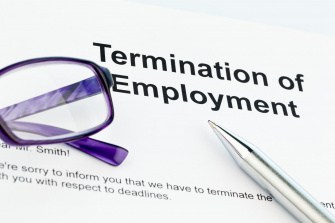
- A Deputy Fire Chief was terminated following an investigation into complaints about his attitude, specifically that of his undermining the authority of his Fire Chief.
- An internal investigation was conducted, but it was found to be completed in a way that was biased towards finding for the Deputy’s termination.
- The issue was brought to the Supreme Court of British Columbia to decide if the termination should be upheld or not.
- The Supreme Court acknowledged that the investigation itself was not well-conducted, and in fact followed the wrong policy, but upheld the termination as being for-cause nonetheless.
- Mr. Golob argued that he was owed, and did not get, a duty of fairness throughout the investigation. The court said he was not owed a duty of fairness because his employment was contract-based.
So What?
This case offers some insight into the value of workplace investigations.
Although the court did find that the investigation was poorly conducted, that did not factor into their decision to uphold the termination — the “cumulative effect of the employee’s misconduct” (insubordination, condescension, abuse of authority, intimidation and bullying, etc) was enough to find in favour of upholding the termination, regardless of the sloppy investigation.
Case Details
In this case, the workplace investigation itself became something of a nullity.
Mr. Golob was never interviewed, nor made aware that there was an investigation ongoing, prior to his being terminated. The City terminated him for cause, without notice, and without giving him an opportunity to respond to the allegations of serious misconduct made against him.
After his termination, the City obtained a number of email and text messages sent by Mr. Golob that were inappropriate and stood up as “serious evidence of insolence.” The court found that this conduct breached the fundamental terms of Mr. Golob’s employment contract; that he “not promote disharmony or discontent” among other City employees. The City then relied on that evidence in showing that they had cause for terminating Mr. Golob.
The court cited Carr v Fama Holdings Ltd for the proposition that “an employer may dismiss an employee, giving the wrong reasons, provided that causes which would justify dismissal did in fact exist at the time.” The after-acquired evidence provided justification for dismissal that did exist at the time of his termination, although the City was not in possession of it at that time, and it could rightly stand in as just cause for Mr. Golob’s termination.
The test for just cause is well established. It is “employee behaviour that, viewed in all the circumstances, is seriously incompatible with the employee’s duties, conduct which goes to the root of the contract and fundamentally strikes at the employment relationship.” It is clear in this case that Mr. Golob’s insubordination was enough to strike at his employment relationship with the City.
Outcome
While the court was less than impressed with the way the City conducted the investigation into the complaints against Mr. Golob, and found there was a pre-determination of the issues, that ultimately did not matter, as there was just cause for his termination regardless of the shoddy investigation.
The City was not given an overly favourable cost award, though. The court felt that the City “cast its net very broadly in identifying conduct of Mr. Golob said to justify dismissal,” and that some allegations were not seriously pursued at trial, but also not abandoned. The City also solicited the subjective views and perceptions of their firefighter witnesses, which are not relevant to a wrongful termination case.
Key Takeaways
- A properly conducted workplace investigation, whether conducted by internal HR personnel or an external investigator, can provide an employer with evidence needed to uphold a termination, should the employee appeal that termination to the court.
- But, if a court finds in favour of an employee who was wrongfully terminated, a poorly conducted investigation could open the employer up to further damages — in that case, not only did they wrongfully terminate the employee, they also didn’t follow proper procedure in investigating a complaint.
- In the case of sexual harassment claims, an employer could be liable for failing to properly investigate a complaint.
References
Golob v Fort St John (City), 2021 BCSC 2192
https://canlii.ca/t/jk8p3


Our main hub for British Columbia is located in the heart of Vancouver. We also have a Kamloops Office for interior residents. That said, we serve the entire province of BC. We have the infrastructure to work with any of our clients virtually — even the furthest regions of British Columbia.
Call (604) 423-2646 [toll free 1-877-402-1002] to get routed to the best representative to serve you or contact us online for general inquiries.
We also have a dedicated intake form to help you get the ball rolling. Our intake team will review your specific case and advise you on the next steps to take as well as what to expect moving forward.
Our offices are generally open 8:30 a.m.—4:30 p.m., Mon—Fri.

Tanya Maas
WORKPLACE LAWYER
Tanya has extensive experience in issues relating to wrongful dismissal, notice periods, human rights and workplace investigations. She believes that clients deserve relentless protection of their legal interests within legal and ethical bounds and an aggressive approach to litigation.
PRIVACY NOTICE: Any information you provide to our office — whether your personal information or employment/employer details — will be treated as strictly confidential and will not be disclosed to your employer or to any other third party. So, please be reassured that you can talk openly to our capable Intake Paralegals worry free. Fill out an Online Inquiry or call us now, your information will be in safe and helping hands.
The Legal Review Process by Taylor Janis Workplace Law
- Taylor Janis strives for high-quality, legally verified content.
- Content is meticulously researched and reviewed by our legal writers/proofers.
- Details are sourced from trusted legal sources like the Employment Standards Code.
- Each article is edited for accuracy, clarity, and relevance.
- If you find any incorrect information or discrepancies in legal facts, we kindly ask that you contact us with a correction to ensure accuracy.

